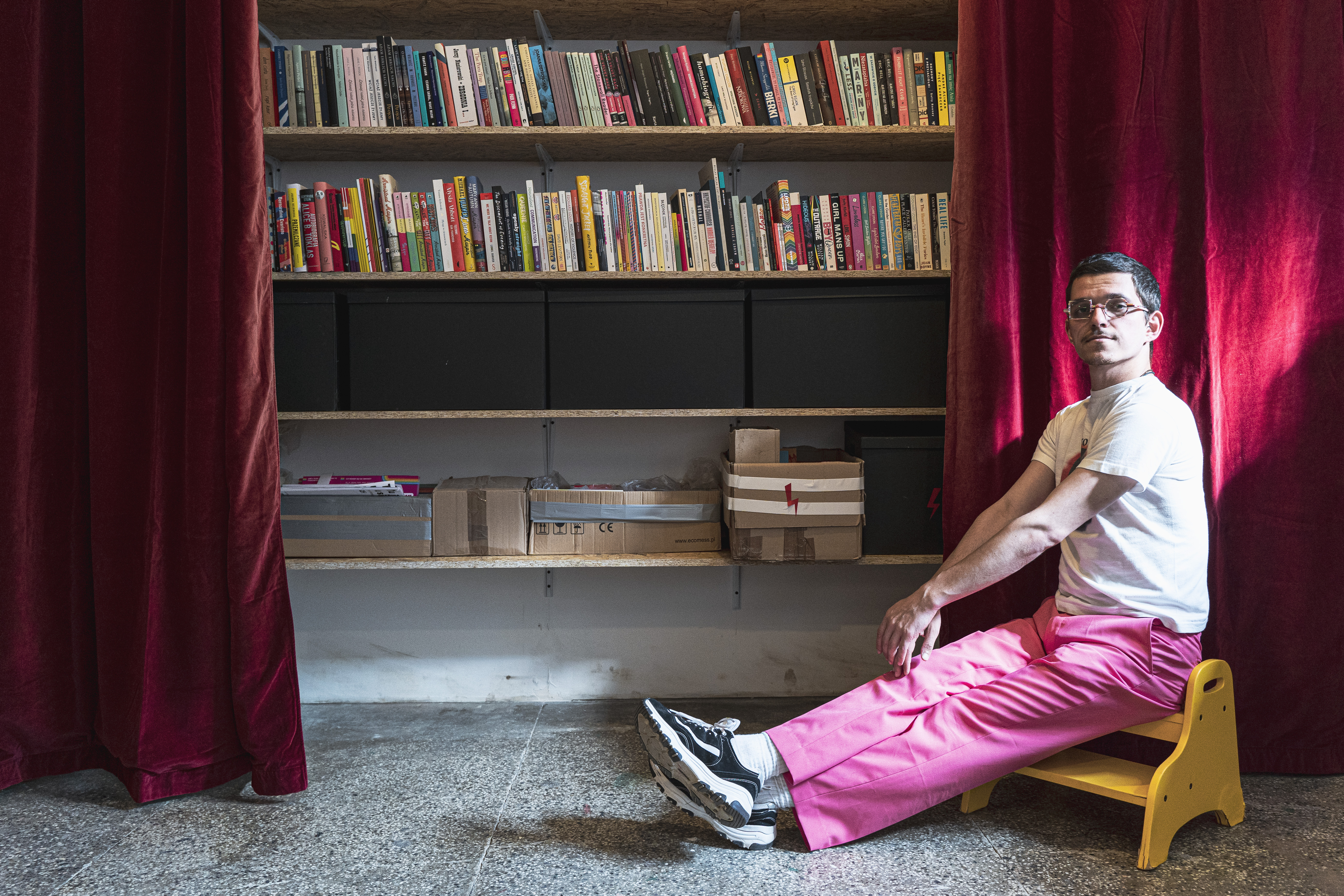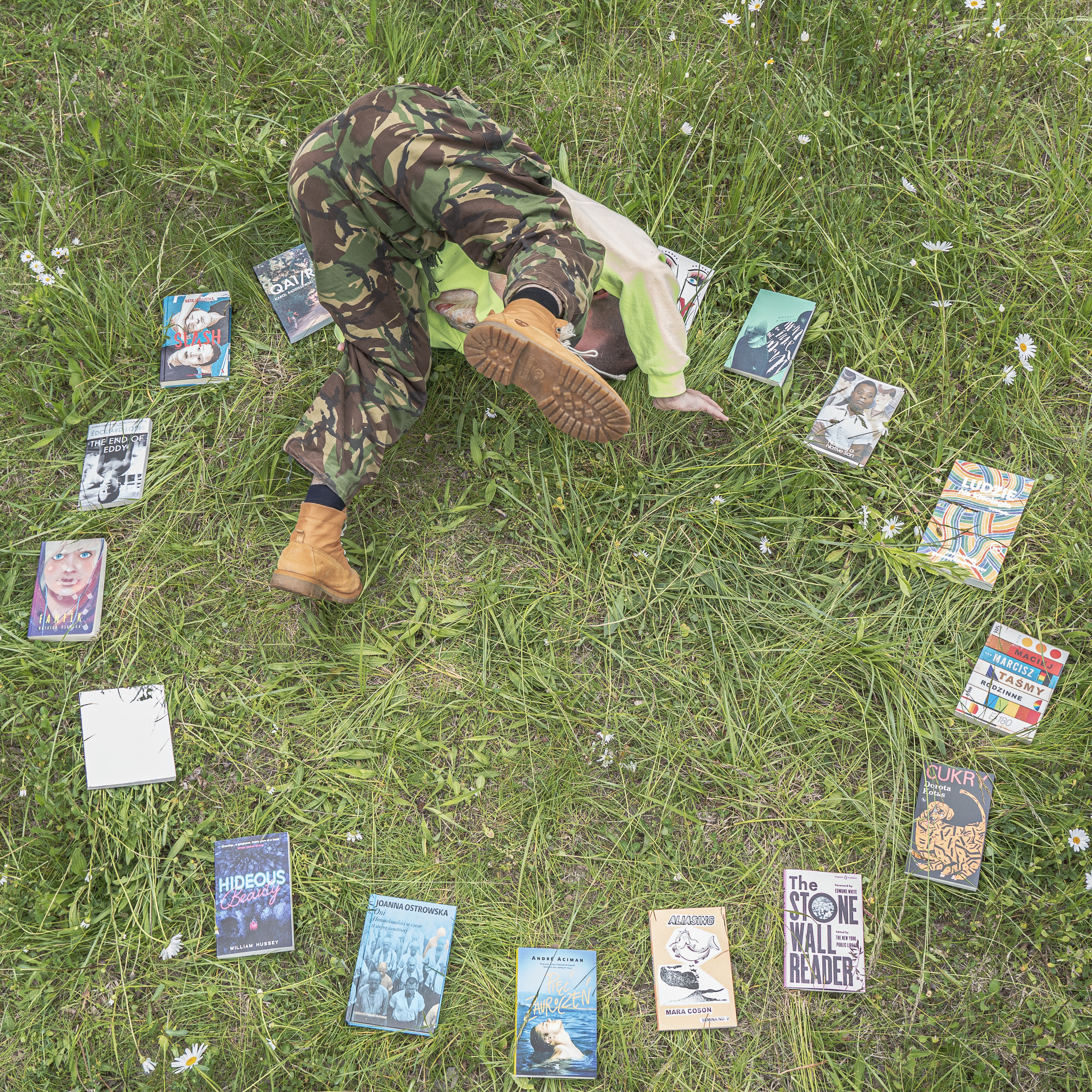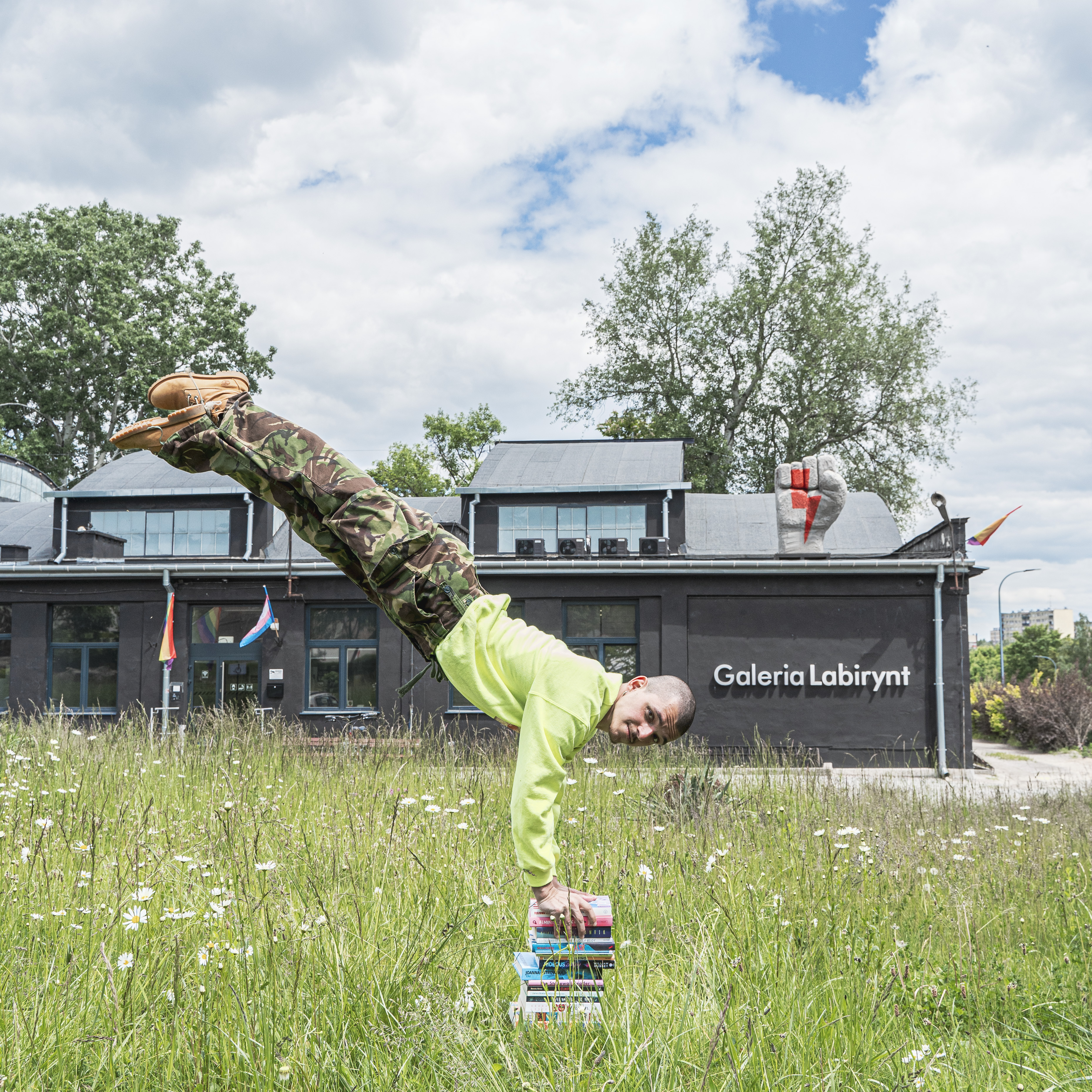Words by Katie Hagan.
The last time I spoke with dance artist Filip Kijowski was in the bleak aftermath of an exhaustive period for Poland’s LGBTQIA+ community. The authoritarian President Duda had just been elected and the reality of ‘LGBT free zones’ (Polish regions which denounce LGBT ideology) was a hellish nightmare no one could awake from. When I ask Filip about the situation a year on, he explains there is still A LOT of tension, which is to be expected considering the country is being run by a fascist.
“Obvious threats and phobias exist, and they are being voiced by ignorant citizens, government officials and heads of institutions,” sighs Filip. There were many protests when he and I spoke in August 2020. Now Filip says, ever optimistically, the communities are getting used to the verity of their living.
There has been a strong, supportive response from Poland’s art world, however. Galeria Labirynt, where Filip is doing his one-year residency as of March 2021, created an exhibition soon after the election in defiance of fascism entitled, We Are People. It sent an important message to the world; hate speech and discrimination will not be tolerated and LGBTQIA+ identities are to be seen as people not ideologies. The exhibition comprised work spanning sound, sculpture and performance, with Filip’s postcard installation featuring among other art by Karol Radziszewski, Gilbert & George, Prem Sahib, Liliana Piskorska and Edna Baud.
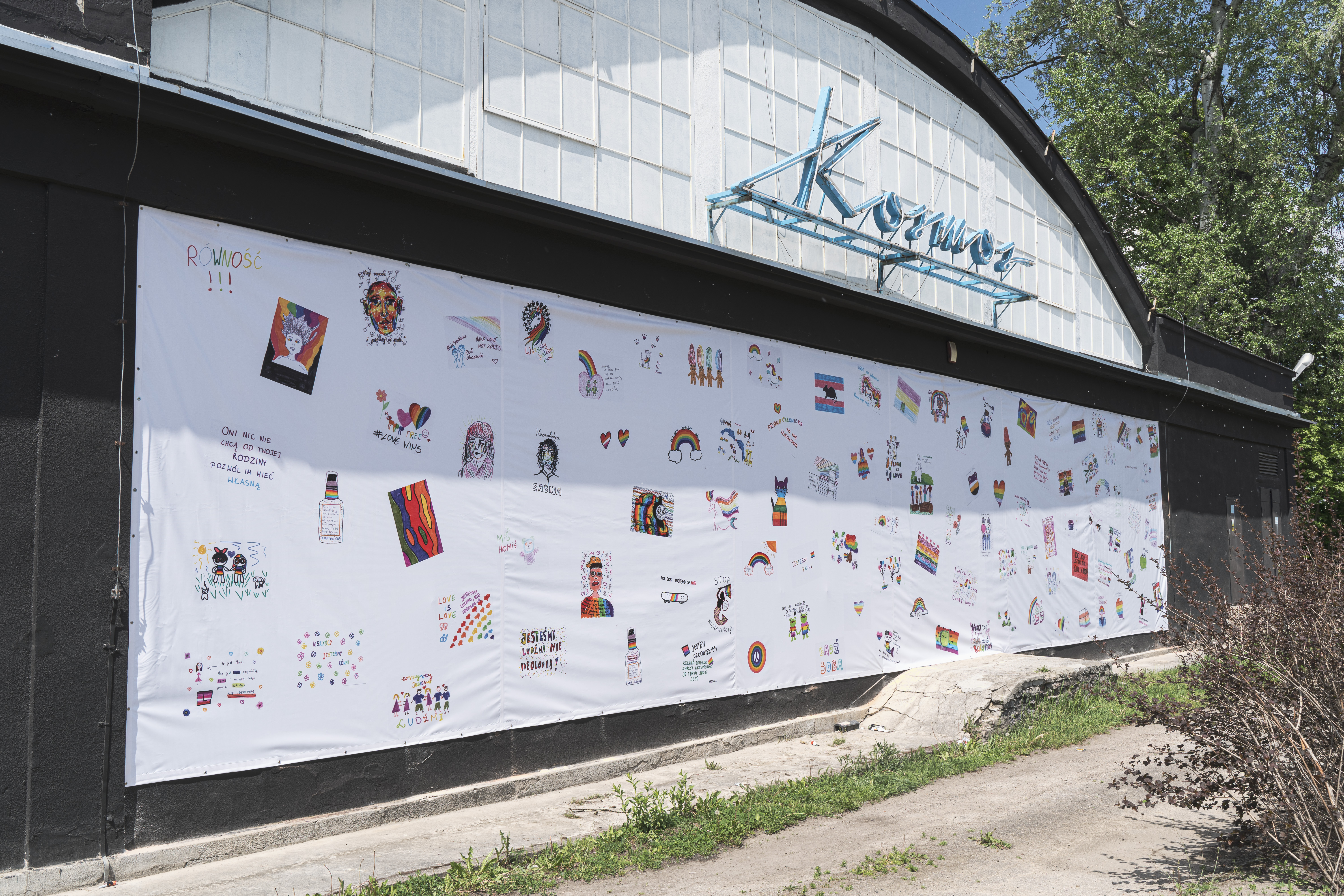
“For me as a queer person, I have taken time to consider which tools I can use to contribute to continued change,” explains Filip. Filip has maintained this cadence by creating Biblioteka Azyla, a beautiful LGBTQIA+ library he is curating during his Galeria Labirynt residency. “It’s very recent,” he begins. “I wanted to create something beneficial, something outside of myself that would help my community.”
“Three months ago, I started emailing queer authors and publications,” continues Filip. “I told them about Lublin (the gallery’s location) and how it is near to the small towns which are ‘LGBT free zones’. Authors and the public have sent books upon books — we have received over 400 already and they keep coming!”
I love thinking about the lives that books have led; their geographies and histories, how many hands have held their contouring spines, the imaginations which have been awakened.
Poland decriminalised homosexuality in 1932, years before other EU countries. However, at present, the ‘LGBT free zones’ reportedly constitute a whopping third of the country. Many of the zones, some of which have been in existence since 2019, have been recognised by the EU and the rest of the world as violating fundamental human rights, and rightly so.
Yet, Poland isn’t sitting idly; it is in the throes of a domestic battle as to the zones’ fate. According to Polish journalism, the country’s Supreme Administrative Court, a relatively independent body, is reviewing whether the zones will continue or meet their end.
I don’t need to tell you how deeply disturbing Poland’s ultra-conservatism is. As Filip elucidates, the fascism is dripping from the gods that be, plaguing the rest of the country sick.
When Filip and I spoke last year, he informed me that himself and artist Barbara Gryka planned to travel to the zones to educate the people that live there. “We went to these zones dressed in these absurd outfits,” Filip chuckles. “We looked like chameleons! But dressing in this way helped us to adapt to this strange environment. Barbara and I became this attraction. Usually as queer people we’d be pushed aside, but as we were in these costumes people were asking why we were here.”
Filip reflects that some parts of this process broke with his own thinking. Indeed, many of the people living in these zones are the poor white working class who do not make the rules. It would be deeply uncritical to clump everyone together and tarnish them with the same brush, and Filip did profess some inhabitants were supportive whereas others were discriminatory. Although the working class are part of an oppressive system and may perhaps be too afraid to break from the status quo, their dilemma, unfortunately, doesn’t exempt them looking at the bigger picture and standing up for what’s right. How can change be put into motion when the people that need to move are standing still?
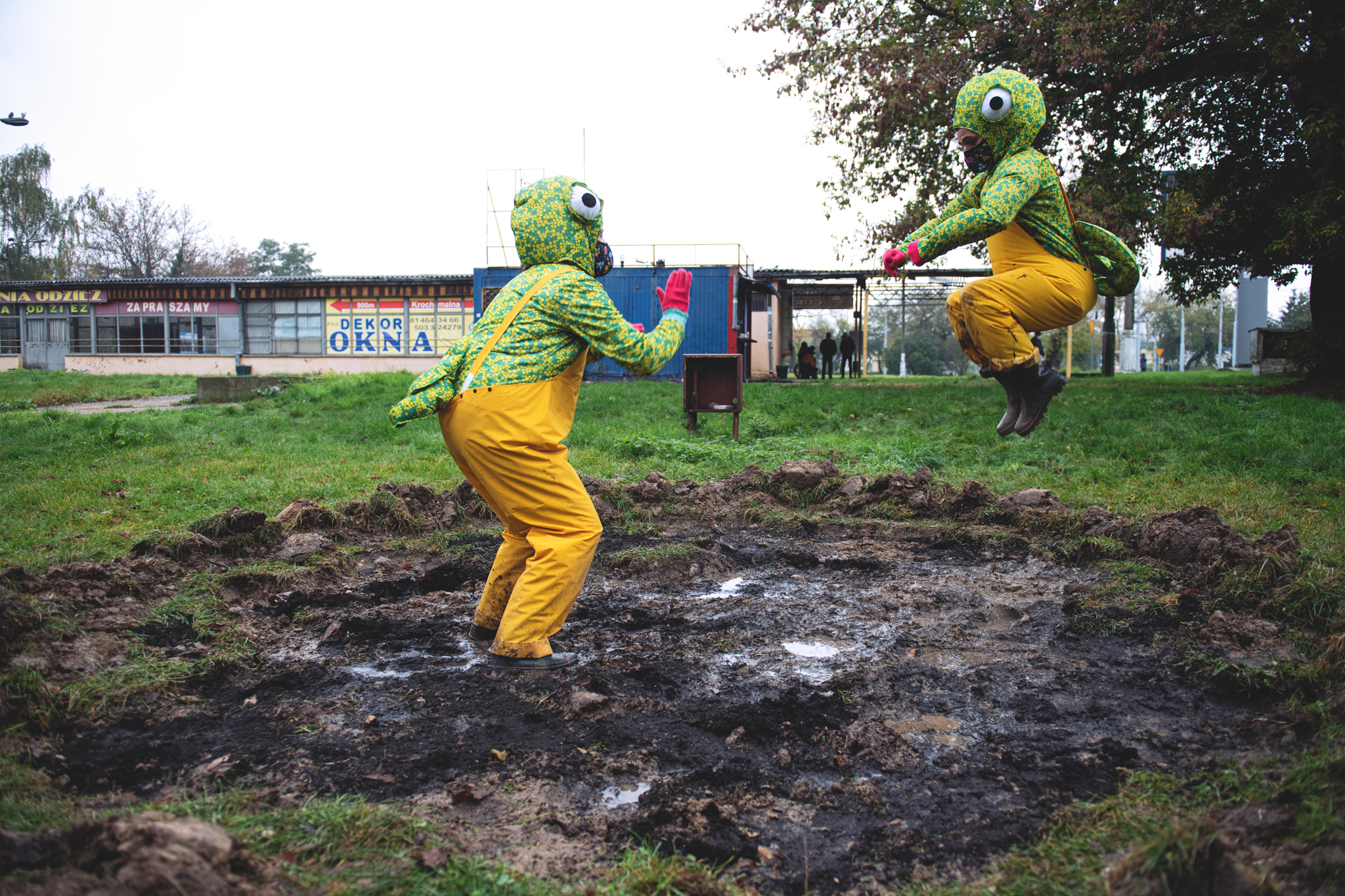
There is literally so much shit to unpack when we talk about the zones. They are inflammatory and damaging. They reveal so much about the complexity of Polish politics. Many Polish nationals reject the zones and there are independent bodies campaigning against them. So, who or what other than Poland’s government, are perpetuating them?
“Many of the Polish working class have no idea about the zones or what LGBTQIA+ stands for, which is deeply worrying,” explains Filip. Ah yes, here lies the rupture. “There is a huge gap in the Polish education system,” continues Filip. “We don’t learn about queer culture and we don’t have sex ed in schools. There were plans to tackle discrimination through education, but it hasn’t been rolled out. This is why I started Biblioteka Azyl, to combat this huge erasure of LGBTQIA+ identities in Poland.”
I’m mindful of the publication of queer literature as I am aware from a Polish friend of mine that many books were censored until the fall of communist Poland in 1990. “Books were banned. A lot of literature hasn’t been translated into Polish. Queer literature wasn’t given a space to exist,” pinpoints Filip. “There have been a few publications since the 70s and some recent queer lit publications have been released. But there isn’t much of a mainstream presence,” he continues.
“It is why whenever I open up a library delivery, I get so emotional,” says Filip. “I get hand-written notes from queer people who fled Lublin because of continued, historical discrimination against the community. They are so pleased there is a LGBTQIA+ library for young people, as it was a resource they could never have.”
There is something so sure about receiving notes and exchanging physical books. “I see this whole project as a choreography somehow,” says Filip. “It’s quite interesting because I usually work with scores and improvisation in my practice. I see the exchanges I have with authors, publishers and the general public as part of a score. The exchanges originate from creating a set of instructions — from asking — and the person on the other end is receiving the score or the direction.”
“I’m really excited by how much movement there is at this end,” continues Filip. “Authors talk to other authors and those who run bookstores. They create posters and are shipping books from one town to another. There are small waves being created in the community all from a single instruction. It feels like choreography.”
Filip is going to stay in Lublin and plans to build the library up to what it needs to be for its community. Queer safety is a key consideration moving forward. “Many queer spaces are loud and proud. They encourage the public to come in. But we also realise that for some queer people — for those who haven’t come out yet — they may not feel comfortable here for various reasons.”
“The library is a welcoming source for knowledge — for queer and non-queer people to experience and learn. It is for those who are going to give it the respect it deserves.”
Filip has created a designated Instagram for the Biblioteka Azyl. Keep up to date with his journey and learn how you can send a book.
